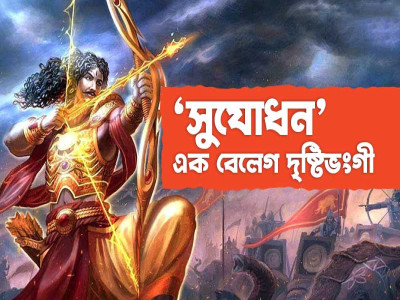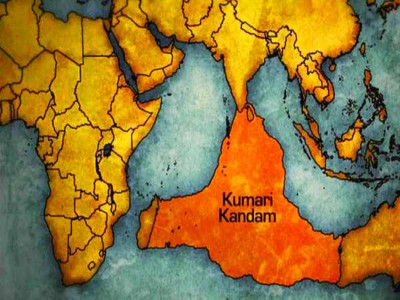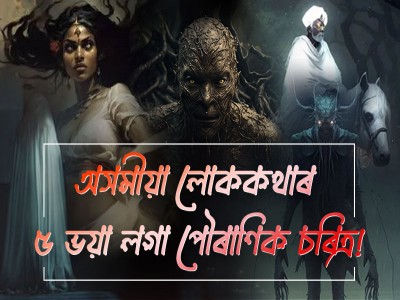
'Suyodhana' our Fear of the Dark
Do you know that there is a play called 'Suyodhana' that presents a different perspective on the character of Duryodhana? The play, rooted in Kannada mythology, aims to highlight the positive aspects of Duryodhana, emphasizing the origin of his name as "one who is extremely difficult to fight with or wage war against." This is actually why the 10th Century poet Ranna in appreciation of many other qualities of Duryodhana, referred to him as Suyodhana in one of his Kannada epics. SV Krishna Sharma, the playwright and director of the play, which has been going on since 1977, says that the play makes people contemplate while considering the larger picture.
The perspective
Suyodhana, formerly known as Duryodhana, displayed early awareness of caste discrimination, opposing the rigid caste system. He witnessed the mistreatment of individuals like Vidur, Eklavya, and Karna due to their backgrounds. Recognizing Karna's talent, he made him the King of Anga, valuing merit over caste.
Suyodhana's
actions aimed at strengthening his team against the Pandavas, not necessarily
villainous. His strategic move with Karna fostered a genuine friendship. Life,
he believed, is a change of perspectives prompting different actions. However,
his darker deeds, like usurping his brothers' kingdom and mistreating Draupadi,
are considered wrong. On the other hand, Yudhishthira's gamble, though risky,
stemmed from his belief in duty. Both characters showcase complexities,
prompting reflection on varying perspectives and actions in the dynamic
tapestry of life.
The prism of change
Originally named Suyodhana, the eldest Kaurava earned the moniker Duryodhana due to his controversial deeds, a term influenced by both the Pandavas and Dronacharya. "Su" denoting good and "dur" signifying bad captured the transformation in his identity. The Pandavas, especially during an incident involving the construction of the grand palace, taunted him as "blind, like father, like son." Draupadi's ridicule further fuelled the enmity, marked by the phrase "Andhe ka Beta." These exchanges, influenced by societal changes, notably the influence of the Asura Kali, played a pivotal role in the unfolding of the Mahabharata.
Dronacharya and Bhisma's favouritism toward the Pandavas further deepened the sense of alienation for Suyodhana. Their preference for the Pandavas in various situations heightened his resentment, contributing significantly to the escalating tensions that ultimately fuelled the enmity leading to the Mahabharata.
The story of the Malanada temple
The unique temple in Poruvazhy village, Kerala, stands apart from conventional worship spaces as its presiding deity is not a god but the often-reviled character from the Mahabharata, Duryodhana. The temple's narrative traces back to a poignant encounter during the Pandavas' exile. Thirsty and in search of water, Duryodhana approached an elderly Kurathi woman for a drink. Unaware of his royal status, she offered him water, only to later realize that, as an Untouchable, she had potentially compromised the Prince's caste.
Anticipating
punishment, the woman confessed her "crime" to Duryodhana. To her
surprise, he responded with compassion, stating, "Mother, there is no
caste for hunger and thirst. Blessed are you for putting the interests of a
thirsty man before your own safety." Touched by this understanding,
Duryodhana decided to gift the surrounding villages a temple, unique in its
construction without an idol. The hereditary priests of this temple are the
descendants of the old woman's family. Over time, the deity of the temple
transformed into Duryodhana, a symbol of protection for the poor and weak. The
villagers, inspired by Duryodhana's benevolence at that moment, revere the
temple as a place where the spirit of Duryodhana is believed to safeguard those
in need.
What if?
In essence, while not altering the rightful heir to the throne (which Suyodhana was) may have shifted some dynamics, the underlying themes of power, ambition, and dharma, as well as the cosmic design portrayed in the Mahabharata, suggest that a conflict of some nature might still have unfolded. The Mahabharata is not just a story of succession but a profound exploration of morality, ethics, and the consequences of human actions.
Life and narratives, including historical and mythological ones, are rarely black and white; they are often complex and multifaceted. Perspectives can vary based on cultural, historical, and individual factors, leading to a more nuanced understanding of characters and events
Disclaimer: The opinions expressed in this article are those of the author's. They do not purport to reflect the opinions or views of The Critical Script or its editor.

Newsletter!!!
Subscribe to our weekly Newsletter and stay tuned.

















Related Comments